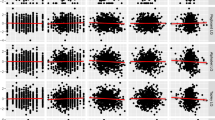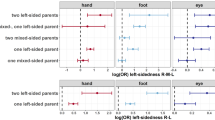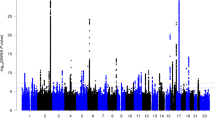Abstract
IT has been suggested1 on the basis of a survey of 648 university students (95 left handed = 14.7%) that handedness is a function of birth order and that left handedness may be caused by neurological insults associated with prenatal or birth trauma. I here report a similar survey of 974 university students (141 left handed =14.5%).
This is a preview of subscription content, access via your institution
Access options
Subscribe to this journal
Receive 51 print issues and online access
$199.00 per year
only $3.90 per issue
Buy this article
- Purchase on Springer Link
- Instant access to full article PDF
Prices may be subject to local taxes which are calculated during checkout
Similar content being viewed by others
References
Bakan, P., Nature, 229, 195 (1971).
Hecaen, H., and De Ajuriaguerra, J., Left-handedness: Manual Superiority and Cerebral Dominance (Grune and Stratton, New York and London, 1964).
Rife, D. C., Human Biol., 22, 137 (1950).
Author information
Authors and Affiliations
Rights and permissions
About this article
Cite this article
HUBBARD, J. Handedness not a Function of Birth Order. Nature 232, 276–277 (1971). https://doi.org/10.1038/232276a0
Received:
Issue Date:
DOI: https://doi.org/10.1038/232276a0
This article is cited by
-
What is a lefthander?
Experientia (1982)
-
Birth factors and laterality: Effects of birth order, parental age, and birth stress on four indices of lateral preference
Behavior Genetics (1980)
Comments
By submitting a comment you agree to abide by our Terms and Community Guidelines. If you find something abusive or that does not comply with our terms or guidelines please flag it as inappropriate.



